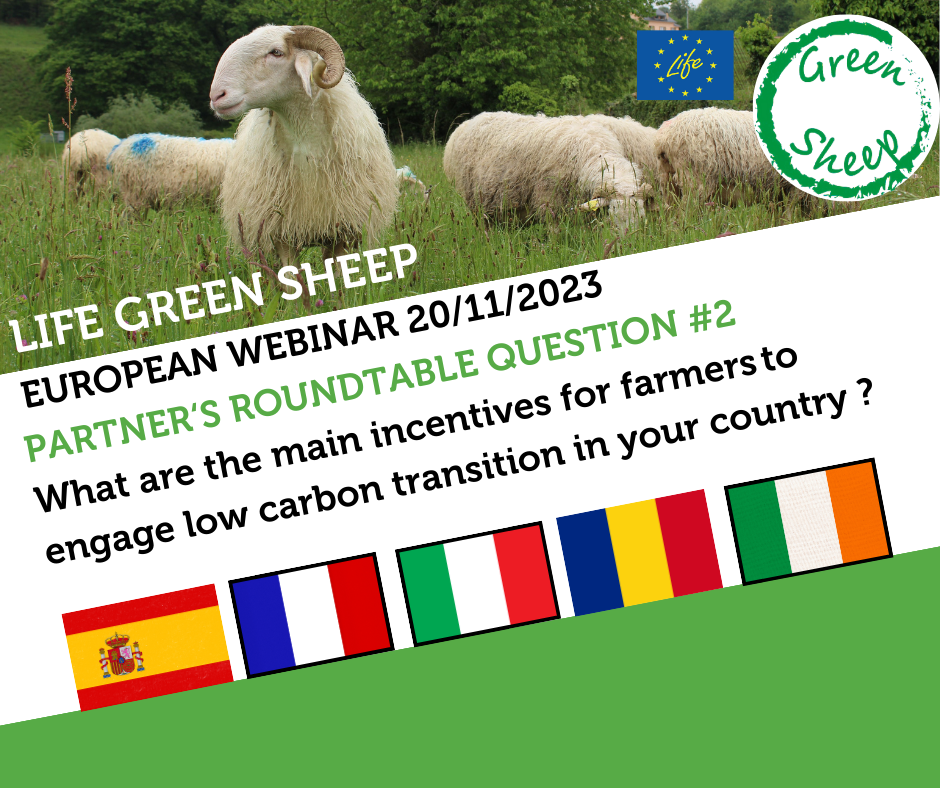![]() Catalin Dragomir (Romania) :
Catalin Dragomir (Romania) :
Currently, there are no specific incentives for the farmers. Also, the market of carbon credits is just emerging. Moreover, the production system is rather extensive / low input, the efficiency is not always the main goal of the farmers. However, the new generation of farmers is more open to adjust the farms’ management, in order to achieve higher efficiency, to implement new knowledge, to modernize the farms, etc. In this context, we highlighting that many carbon mitigation measures lead also to higher efficiency of various farm activities.
![]() Sindy Throude (France)
Sindy Throude (France)
From “France” point of view, the fact that the environment topic is linked to technical and economic factors is the 1st argument, which is valid in all countries and not just in France. Indeed, by improving technical performance (optimising inputs, improving flock management, making better use of fodder…), you improve your economic results as well as your environmental ones. Usually, it’s along the same lines, as can be seen from the first action plans drawn up on innovative French farms: the greenhouse gas mitigation (on average -11%) is almost always accompanied by an economic gain (on average +€19/ewe).
![]() Gabriella Serra (Italia)
Gabriella Serra (Italia)
The arguments that most attract the attention of the farmers, when it comes to correcting the condition of their farms in terms of environmental impact, are those connected with the production level and/or energy consumptions. Obviously, all these elements must then be translated into a relationship with the economic aspects of the farm.
![]() Roberto Ruiz (Spain)
Roberto Ruiz (Spain)
Probably the only effective argument is the expected positive relationship existing between the improvement of the technical indicators, with the profitability and the environmental impact (i.e. higher efficiency, lower costs and lower carbon footprint). Also the expectations for the future implementation of carbon markets, which may bring at least payment for carbon fixation (ecosystem services). It is difficult that farmers assume the responsibility of their activity, even if it is just partly responsible for CC, especially when we are talking about a socially marginalised sector, usually economically unprofitable and in a clear recession. Also taking into account that sheep systems make a low consumption of fossil fuels, maintain the rural environment and the population thanks to the activity, avoids fire hazards and fixes carbon.
![]() Cathal Buckley (Ireland)
Cathal Buckley (Ireland)
The Irish sheep sector is strongly export oriented and in 2022 exports to over 35 countries were valued at €476m. From a consumer, marketing and competition on export markets perspective there is significant pressure from meat processors to produce at the lowest possible carbon footprint. From an internal Irish perspective there is significant pressure to reduce absolute GHG emissions to achieve the sectoral target set down for agriculture. There are also potential economic benefits at farm level from producing output in a more efficient environmentally friendly fashion or more output with a given level on inputs. Recent reforms of the Common Agricultural Policy have included incentives for farmers to adopt practices that improve carbon efficiency. Subsidies for been targeted through pillar 1 and 2 base eco/agri-enviroment schemes.

